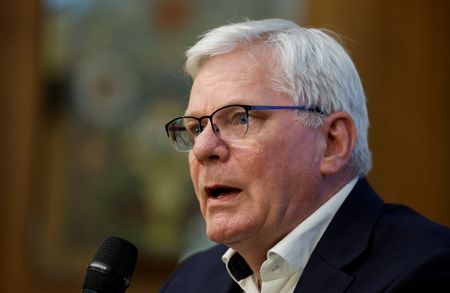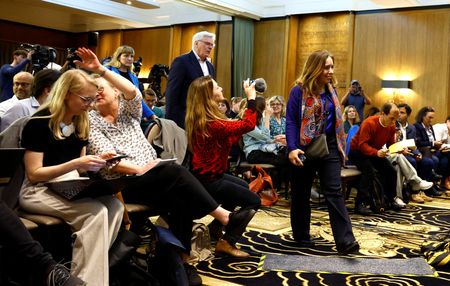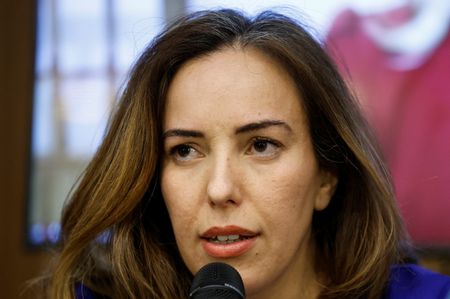LONDON (Reuters) – The editor of WikiLeaks denounced the British judicial system as crooked on Wednesday, days before a crucial court hearing which could end the legal battle by the organisation’s founder Julian Assange to stop extradition to the United States.
Assange, 52, is wanted by U.S. prosecutors on 18 charges, all bar one under the Espionage Act, over WikiLeaks’ release of thousands of confidential U.S. military records and secret diplomatic cables.
At a hearing on Monday, judges at London’s High Court could agree to rubber stamp his extradition, give him permission for a full appeal or even set him free, his wife Stella Assange said.
“Julian is just one decision away from being extradited,” she told reporters on Wednesday. “If the judges find against him on Monday, then there will be no further avenues for appeal in the UK.”
In March the High Court provisionally gave Assange permission to appeal but said satisfactory assurances – that the U.S. would not seek the death penalty and would allow him a First Amendment right to free speech in a trial – would make this unnecessary.
Those submissions were subsequently delivered in April and will be the focus of Monday’s hearings, with Stella Assange labelling the guarantees as “weasel words”.
Kristinn Hrafnsson, WikiLeaks Editor-in-Chief, said the U.S. had been repeatedly allowed to change its case while Assange’s arguments that he was being targeted for political reasons were ignored.
“The judicial process is rigged,” he said, saying the case was “crooked” and a victim of “institutional corruption”.
Stella Assange said she did not expect a “rational outcome” from the court on Monday but hoped the judges would “do the right thing”.
Assange, who is an Australian citizen, has spent more than 13 years in various legal battles in the English courts since he was first arrested in November 2010, and has been in a maximum security jail in east London for the past five years.
His many supporters say the prosecution is a travesty, an assault on journalism and free speech, and revenge for causing embarrassment to Western governments.
But the U.S. authorities say his actions were reckless, damaged national security, and endangered the lives of agents.
(Reporting by Michael Holden; Editing by Toby Chopra)















